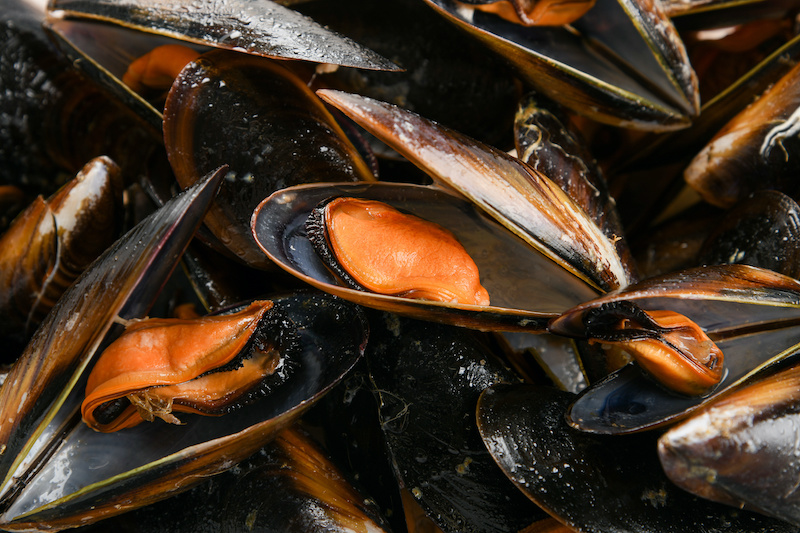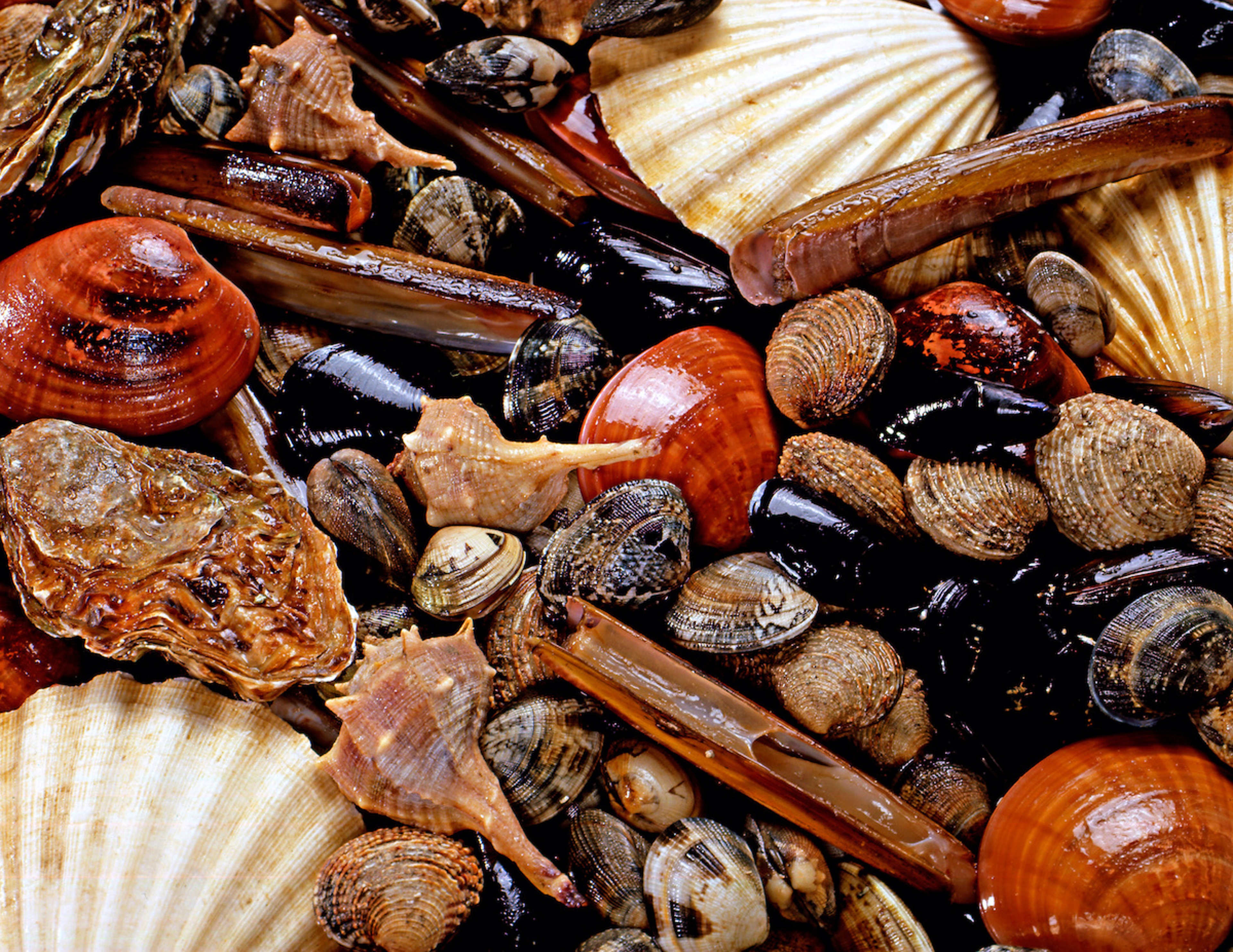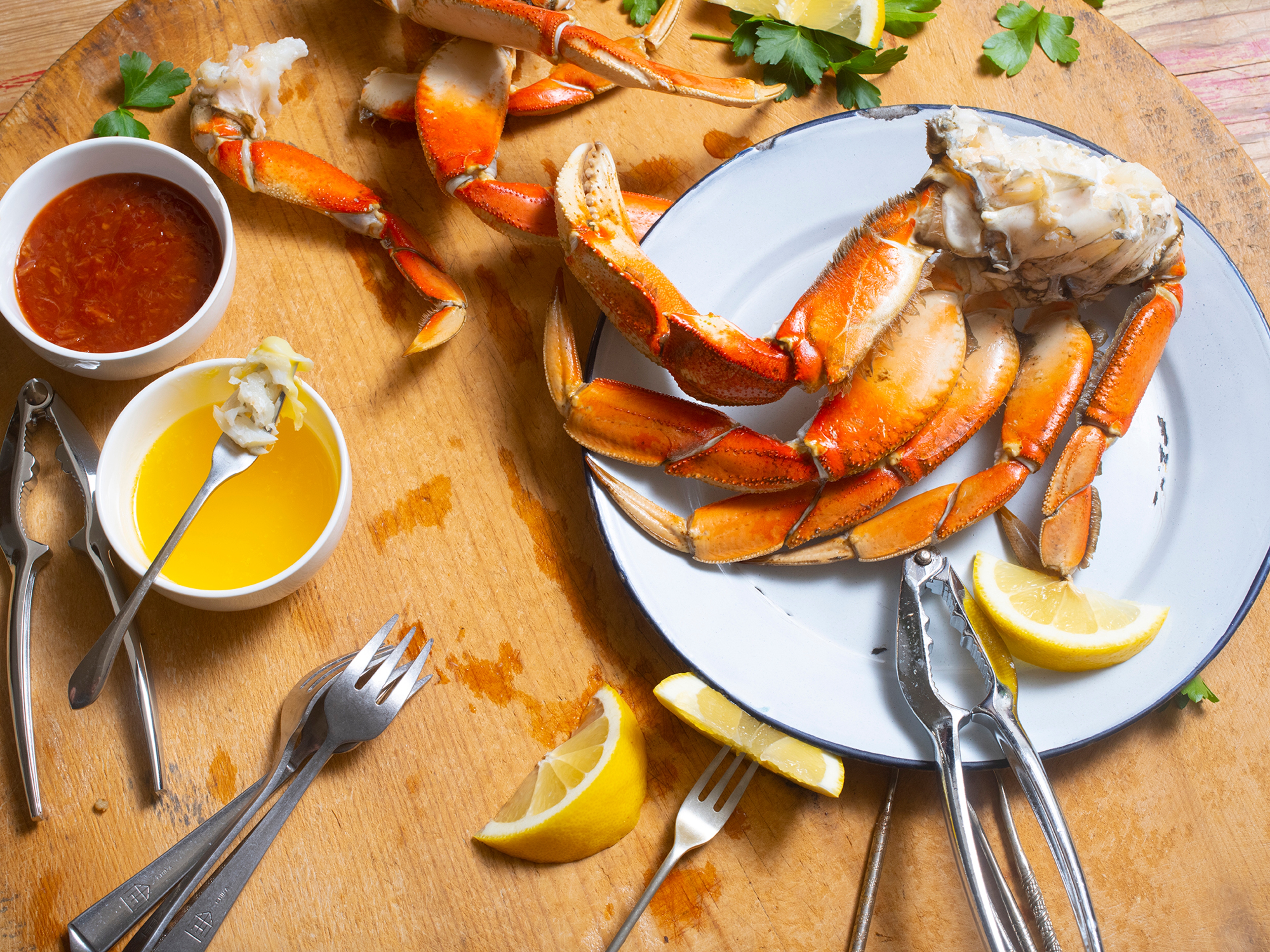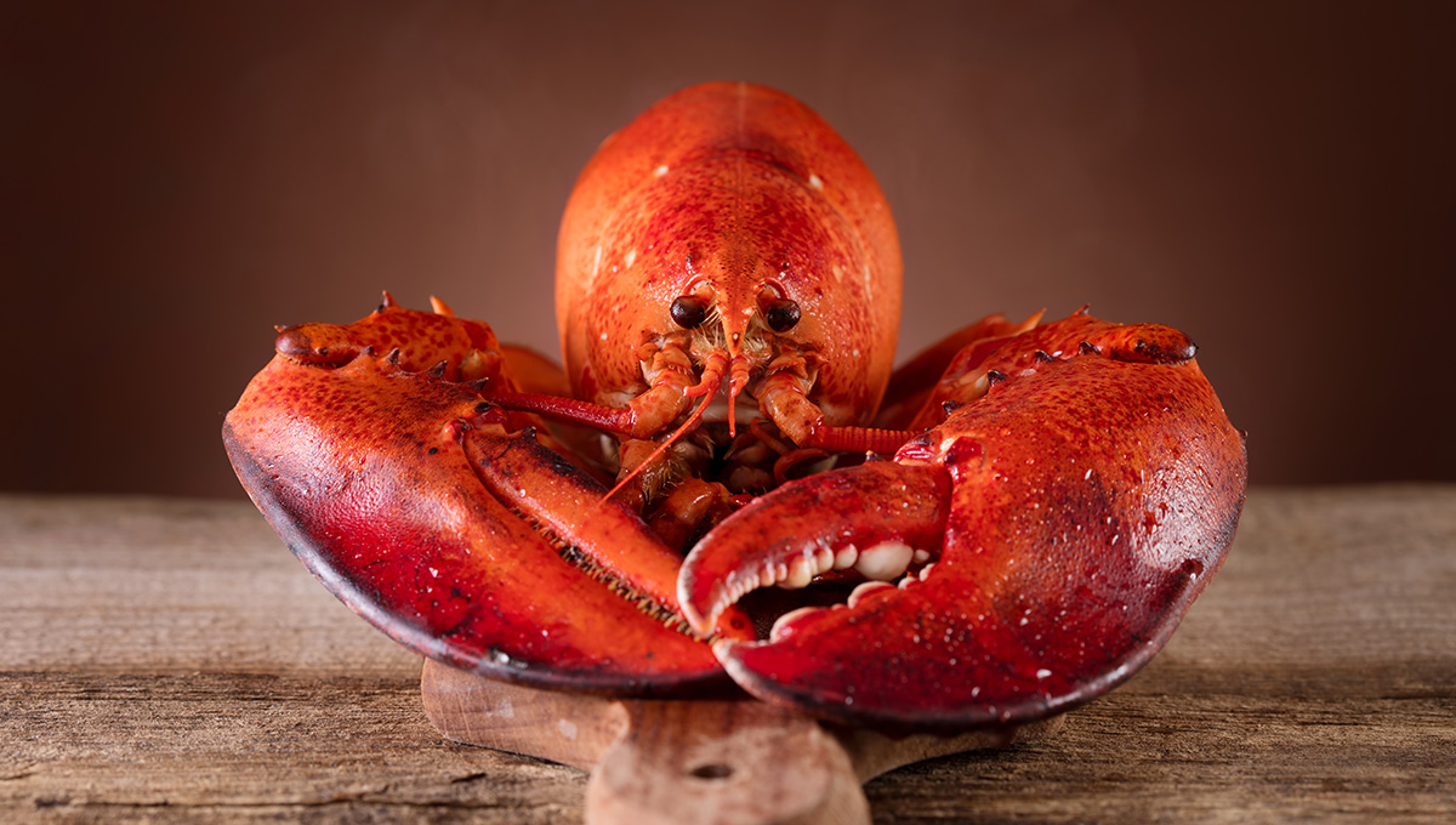We May Owe It All to Shellfish
Thank a clam, oyster, mussel, or scallop for your large, capable brain.
Jan 06, 2023
The human brain is a wonder.
As a percentage of bodyweight, a human brain is an astounding 15 times larger than that of a gorilla. This big brain is the defining feature of human beings, giving rise to our unmatched ability to think, remember, form abstractions - generally, be human.
How did that happen?
Oddly enough, some scientists claim consuming bivalves such as clams, mussels, oysters and scallops, was the key to making us who we are.
The brain-building proteins and, especially, omega-3 fats, in shellfish may have been fuel for dramatic brain growth that eventually broke human beings out of the small-brained hominid pack.
Here's how:
Roughly between 195,000 and 123,000 years ago, some of our earliest human ancestors were confronted with a climate event that changed life as they knew it. Fossil records suggest the planet entered a long glacial stage. This expanded deserts, made the atmosphere cold and dry, and caused a big drop in the population of a young species known as Homo sapiens.
Suddenly, our ancestors were an endangered species.

The climate event which proved catastrophic for many of the Homo sapiens caused an interesting phenomenon: To this day, humans "exhibit very low genetic diversity relative to many other species with much smaller population sizes and geographic ranges."
This has led some researchers to conclude that only a very small group - perhaps as small as 100 people on the coast of South Africa - were able to survive that event, resulting in what geneticists call a “population bottleneck."
Based on fossil evidence, it appears that all of us can be traced back to that small bottleneck.
So what's this got to do with shellfish?
More Gathering, Less Hunting
Professor Michael Crawford of London's Imperial College has pointed out in numerous scientific papers, conferences, and his book on evolutionary nutrition, The Driving Force, that we have “incontrovertible evidence" that the rapid brain growth Homo sapiens enjoyed during this timeframe (and our dependence on DHA, one of the omega-3 fats, for brain health) was likely due to a high seafood diet - and specifically, shellfish.
Professor Crawford has questioned the “hunter" emphasis in the hunter-gatherer diet for decades now. He points out that even today with modern tools, hunting in the African savannah is a challenge which requires complex cognitive function, to say nothing of the toolmaking and butchering.

The fact that human beings can open shellfish with a sharp tool – or even by smashing them with a stone – made this rich food source uniquely available to our early ancestors.
Basically, you need brains to hunt. And in the bottleneck years, we didn't quite have the brains yet.
But that small band, forced out of the arid plains and clustered along the South African coast, did have shellfish, which early humans wielding stones and primitive tools were uniquely able to open and eat.
The earliest fossilized human remains from South Africa's Pinnacle Point region clearly indicate that shellfish was a crucial staple of the ancestral diet, along with sea-bird nestlings and eggs.
And Homo sapiens brains, already somewhat larger than those of other hominides, began to grow rapidly.
Simply put, it may be that humans owe it all to mussels, clams, scallops and oysters.
So we can thank shellfish...and women
In the days of coastal-dwelling hunter-gatherers, it seems clear that in coastal-hunter gatherer cultures, women were responsible for collecting shellfish.
So it was more likely than not some rather bold woman who first began to gather and depend upon oysters and other mollusks for their brain-building proteins, fats, minerals, and ease of harvest.
The skill and focus of women in this area would have proven especially useful during times of decreased energy and mobility, such as pregnancy and lactation, Crawford has written.
The abundance of shellfish and its still-essential nutrient bounty - omega-3 fatty acids such as DHA, and. minerals including iodine, zinc, and iron - along with valuable probiotics to start the foundation of a healthy brain and gut.
And that, the research suggests, made us big-brained humans.







